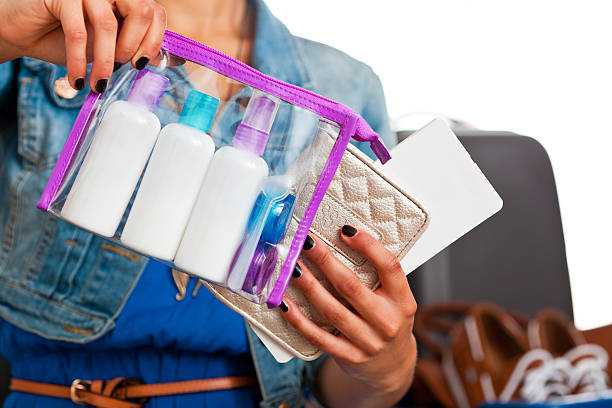Why have airports introduced restrictions on liquids in hand luggage?
Anyone who has traveled at least once by plane knows that liquids / water are not allowed at airport checkpoints. At the same time, creams, cosmetics, other types of liquids are accepted in hand luggage in bottles and boxes that do not exceed 100 ml/container and 1 kg in total. At the same time, they must be packed in a special, transparent bag that can be completely closed.
The prohibition / restriction of liquids in airports is related to security
You've probably wondered why airports have banned/restricted liquids in hand luggage. Many would think that this is a purely commercial decision, causing people to buy water, juices, other liquids from the shops inside the airport. But the reality is completely different. The decision to ban liquids and restrict the amount of liquids in hand luggage is a matter of security.
In August 2006, British security services foiled a terrorist attack in which explosives were carried on board aircraft in standard drink containers. The plot involved the use of hydrogen peroxide as an explosive. Later, the substance and other elements were assembled into a bomb and was to be detonated on board.
Fears of such attacks led to the immediate imposition of severe restrictions. The rules were imposed overnight, and from the morning of August 10, UK and US passengers could not carry anything on board the aircraft except a small personal item. Liquids were forbidden, apart from baby milk.
This had a significant impact as the strain on baggage systems was severe. Many flights were canceled and many passengers switched to alternative transport. According to The Independent, in the week following the ban, British Airways canceled more than 1.500 flights and the UK aviation sector lost a total of more than £50 million (the equivalent of $110 million). As the rules were introduced suddenly, this caused confusion leading to long delays at airports.
The new scanners will allow the passage of liquids in hand luggage
Since then, procedures and rules have improved, as has screening and scanning technology to detect and test liquids. Nowadays, there is growing hope that technological improvements may soon begin to be able to remove the restrictions. There are airports that have implemented new scanners that now allow passengers to pass liquids and, at the same time, no longer remove electronic equipment from hand luggage.
Cluj International Airport has installed the new scanners of EDS standard C3 type for passenger and cabin baggage processing.
By installing these equipment, the security control process was streamlined and the processing time of passengers' luggage was reduced due to the superior scanning capacity. At the same time, standard C3 EDS equipment allows cabin baggage to be scanned without the need for passengers to remove liquids, aerosols or large electronics from hand luggage. The equipment will be equipped with an integrated automatic tray return system.
Britain could relax hand luggage liquids policy
With the new scanners installed, security rules on removing liquids and laptops from hand luggage could be removed in the UK, from 2024. A final decision has yet to be made, but what could it mean for the future of air travel?
"We have just started the expansion of the security area in Terminal 3, which will have more CT scanners and will have a deadline – mid-2024,” said Heathrow Airport Chief Executive John Holland-Kaye. "Until then, passengers must comply with the current rules regarding carrying liquids in hand luggage".
That said, in the coming years we will see the removal of these restrictions. Until then, please respect them for security reasons.

